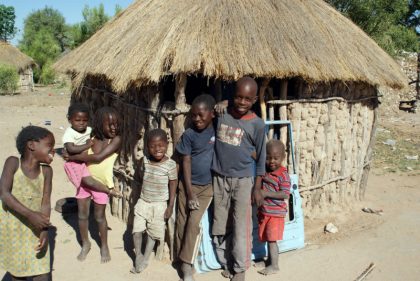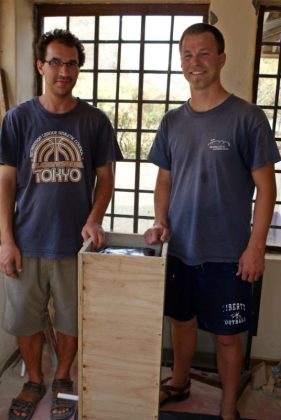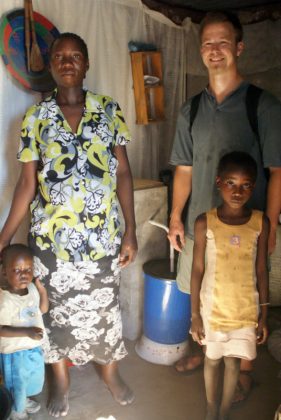 This project has been completed under the direction of Peace Corps Volunteer Caleb Stephens. To read about the beginning of the project, CLICK HERE.
This project has been completed under the direction of Peace Corps Volunteer Caleb Stephens. To read about the beginning of the project, CLICK HERE.
The project was to refine the bio-sand filter technology and to begin to produce filters and proliferate their use.
Caleb reports:
The project began as a teaching project in which another volunteer and I were going to teach Namibians how to build bio-sand filters, and start a small business doing so. After having many people initially show interest in the project, the concept had to be modified due to lack of interest. At this point, the project turned just the construction of the filters, and then the installation of individual units and instruction on their use.
It took a number of weeks to build the filters, and in the meantime, we created a model for a wooden bio-sand filter mold that is unlike any we had found in our Internet research. Eventually, we got the filter sand from a local quarry and built four filters. After testing the filters and curing them for several days, I got together with local families and took the filters to each of their houses.
Over the next few weeks, and through the use of a translator, I taught them how to use and maintain the filters. The families showed a great desire to have cleaner water.
This was at the end of my two years in Nkurenkuru and it turns out this was as far as the project progressed. I had planned on making follow-up visits during our 3rd-year extension in a city 200 k south of where we lived. However, our time with our NGO did not work out as planned, so I was never able to make a follow-up visit.
The project resulted in the construction and installation of 4 bio-sand filters, and the instruction of the families on water cleanliness and the reduction of disease, as well as the construction, use, and maintenance of the units.
I am truly grateful for the funding, which gave me the ability to learn how to build the filters and show local Namibians how to use them.
We, in turn, are grateful to Caleb for finishing this project, and again wish to thank his friends and family for providing the funding
We note that, although the project did not reach the manufacturing and proliferation stages, the project can serve as a model for those who come later to pick up and move forward. The bio-sand technology is still very viable in this type of situation and location.

